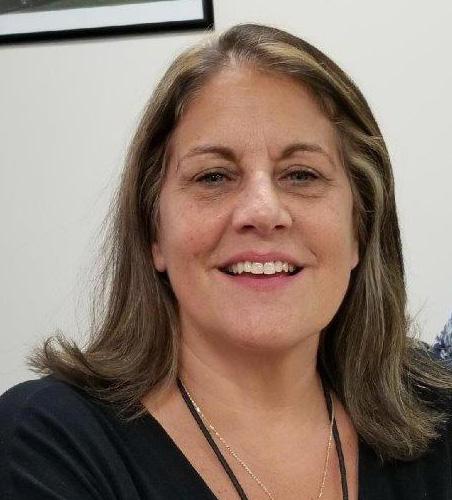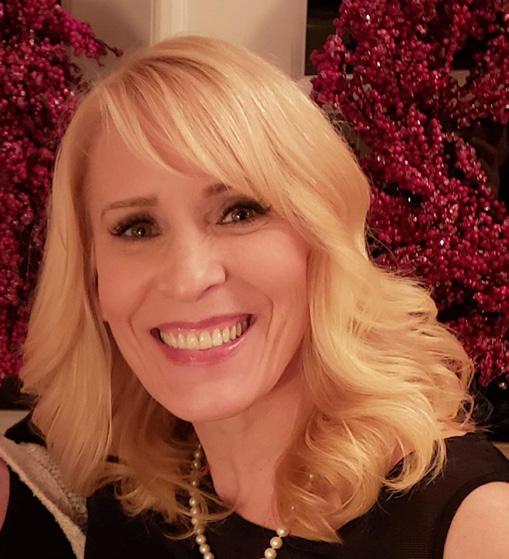HCS Highlights SUMMER
2023





I am pleased to share with you that on June 30, 2023, Centers for Medicare & Medicaid Services (CMS) approved Washington’s request to extend and amend its section 1115 demonstration waiver. This continues our demonstration waiver for five more years! As you may know, we call this waiver the Medicaid Transformation Project (MTP), and the MTP renewal “MTP 2.0.” This agreement allows our state to implement new policies and use federal Medicaid funds to develop innovative projects, activities, and services that benefit Apple Health (Medicaid) enrollees.
What does this mean for Aging and Long-Term Support Administration and Home and Community Services?
Presumptive Eligibility: In this approval, CMS has authorized presumptive eligibility (PE) for individuals who need access to home and community-based services (HCBS) under the Medicaid state plan and 1915(c) waiver authorities. The PE process allows individuals who plan to enroll in Community First Choice, Community Options Program Entry System Waiver (COPES), and Medicaid Personal Care, to self-attest to meeting financial and functional requirements. The purpose of this is to expedite the delivery of benefits in the least restrictive setting while the state is conducting a full assessment of eligibility for HCBS. Our successful use of presumptive eligibility over the last six years in the Medicaid Alternative Care (MAC) and Tailored Supports for Older Adults (TSOA) has paved the way for this expanded use of PE. We plan to implement a pilot program to support acute care hospital discharges and will expand to all in-home services next year assuming the pilot is a success! We will share more detailed implementation plans with you once those are developed.
Rental Subsidies: CMS also authorized transitional housing supports for individuals. Evidence indicates that these benefits are critical drivers of an individual’s access to health services that maintain health and wellness. For our teams, targeted populations may include individuals post-discharge or those with chronic conditions, who screen positive for food, housing, or financial insecurity, individuals transitioning out of institutional care or congregate settings, individuals who have been assessed to have a behavioral health need, and individuals at risk for institutionalization due to inaccessible living environments. Our HCS housing teams will be helping our clients find recuperative care and short-term post hospitalization housing; short-term posttransition housing for up to six months, housing supports; and medically necessary home modification and remediations to address high risk clinical conditions.
Programs approved to continue and expand
• Medicaid Alternative Care (MAC) and Tailored Supports for Older Adults (TSOA)

• CMS states that the MAC and TSOA programs appear to have reduced statewide utilization of traditional long-term services and supports.
• The income limit qualification for TSOA is expanded to 400 percent of the federal benefit rate (currently $3,656) allowing for more clients to be eligible.
Cathy Kinnaman Director• The resource standard is increased to the reflect 6 months of the current private nursing facility rate, increasing the standard to $66,456 and we will be able to automatically increase the standard each year as the NH private rate is adjusted. It also increased the limit for married couples to $134,757.
• Expanded benefits include nurse delegation for dyads, pest eradication, specialized deep cleaning, and community choice guide services for MAC & TSOA recipients.
• Supportive Housing (SH) and Supported Employment (SE)
• CMS stated that results from the Foundational Community Supports programs were promising and the state has made significant progress.
• The SH program provides rent/temporary housing for up to six months, specifically for individuals transitioning out of institutional care or congregate settings, Institutions for Mental Diseases, correctional facilities, and acute care hospitals; individuals who are homeless, at risk of homelessness, or transitioning out of an emergency shelter. This can include utility costs including activation expenses and back payment to secure utilities for qualified individuals.
• The SE program provides supportive services to those who want to work and become employed in competitive, integrated community employment. Services are intended to ensure successful employment outcomes through skills training, cueing, modeling, and supervision as identified by the person-centered assessment.
Programs pending, discussions for these programs will continue past July 1, 2023
• Rental subsidies (longer than six months).
• Program innovations that support older adults through coordinated personal care and guardianship/decision-making supports.
With this extension, Washington will introduce new initiatives and investments to assist the state in improving health coverage, access, and consistent provision of high-quality services for Medicaid beneficiaries, while advancing health equity among its beneficiary populations.
This waiver approval will extend many longstanding demonstration authorities and allow the state to test the effectiveness of innovative practices aimed at promoting high-quality, evidencebased, coordinated, and integrated care. The approval is effective July 1, 2023, through June 30, 2028.
Thank you to the efforts from our Home and Community Programs, Financial Eligibility & Policy, and Employment and Housing teams in putting forth the waiver updates.
For even more information, check out these links from Health Care Authority:
• HCA Announcement
• MTP News Page
• MTP renewal page
• Approval letter from CMS
CathyGratitude….is the quality of being THANKFUL, readiness to show appreciation for and to return kindness!
Tami Rucker, Region 1 Administrator
I wanted to take this opportunity to express my GRATITUDE to all 288 staff that CHOOSE to work in region 1 Home and Community Services. The work has not become any easier, that is for sure! All programs are currently working diligently and impacted by the Public Health Emergency unwinding in one way or another and are doing their very best to serve clients with little or no interruption in their service. Your teamwork, open & clear communication, grace, patience, and commitment to serving others is recognized every day. THANK YOU!
I am looking forward to celebrating YOU, your teams, and the amazing work you do, at our Annual Staff Celebration on September 19th, 10 am to 2 pm, @ The Moses Lake Golf and Country Club! See you then!

Since the creation of the R2D2 team in June 2020, the team has consistently demonstrated their commitment and passion for our clients. Despite some of the challenges of locating placement for clients with barriers such as low daily rate, heavy care, behaviors and/or wanting to take be place with their pets, they are still able to locate placements. The team’s resilience, productivity and positive outlook have been extraordinary. R2D2 have worked collaboratively and developed a professional relationship with our community partners to locate long term placement for over 2700 clients. Most of those clients comes from our local psychiatric hospitals, acute hospitals as well as nursing facilities. Not only have they excelled individually, but they have fostered a culture of support and collaboration with our AFH providers, other HCS case managers and other facilities such Harborview, SeaMar and Auburn Post-Acute Rehab. Case managers have expressed their appreciation for all the help that R2D2 provides. It’s not unusual for our case managers to get email from their colleagues stating , “Couldn’t imagine doing all this without your amazing help. Thank you!” or “Wow! You are amazing! Thank you very much. They also hear from our AFH providers who call to report they “love” and “appreciate” R2D2 workers for their quick response and attention to detail. As we move forward, I have no doubt that the team will continue to achieve great things and greater heights.
 Submitted by Tuong Pham and Carmen Li
Submitted by Tuong Pham and Carmen Li
 Sonya Sanders, Region 2 Administrator
Debbie Willis, Region 3 Administrator
Sonya Sanders, Region 2 Administrator
Debbie Willis, Region 3 Administrator
Region 3’s Regional Advisory Board, which consists of staff, supervisors, SHPCs and management, sent a survey to the region asking for feedback on what they need to master our work environment. Through this feedback, the Board saw a clear need to create professional development supports and opportunities. Some survey responders are looking to promote, others don’t know where to start, and some just want personal and professional development tools for the positions they are in now.
To fill this gap, the Regional Advisory Board has been working on a few projects to support this effort.
Project 1: A Success Roadmap available to all Region 3 staff on our SharePoint site.
The information in this site will help anyone who wants to get started on the road to success. The roadmap includes:
• Strategies and insights drawn from world-renowned researchers, scientists and psychologists
• Practical tools and exercises for better understanding your innate potential
• Resources and recommendations to improve your career satisfaction

Project 2: Nail Your Next Interview Workshop
Interviewing is a necessary to gain employment but can be tough and very nerve-racking for those who struggle with interviewing which is why created this workshop to provide tools to help.
Objectives:
• Learn about Targeted Selection and Behavioral Based Interviewing
• Discuss success Profiles and Competencies and how to take advantage of this resource
• Prepare scenarios using the Success profile and competencies for you are applying for
• Learn the STAR technique and how to translate what you have accomplished into STAR
• Tips and tricks for interviewing in a virtual and in-person world
Project 3: Are You Ready for Management?
As positions for supervisors and other management positions come open, we (management) hear that people may be interested in supervision or management, but they are not sure what these positions do and whether the position is a good match for them. This workshop is designed to provide information (from the managers who do the work) about what various management positions do, learn what is takes to be successful in the position and train participants on informational interviewing and other tools, so they can gather the information about positions they may be interested in.
Objectives:
• Provide opportunity to ask questions and learn about management positions that interest you.

• Understand what an informational Interview is and how to conduct one.
• Understand what Success Profiles and Competencies are for positions you are interested in and how to use them to prepare for the positions you want.
• Develop a better understanding of what is important in a management role.
We are also in the process of developing a oneday workshop designed to help our best navigate the tools in the Success Center and plan their own roadmap for success!
“The road to success is always under construction” ~ Lilly Tomlin

The rough news: Life is busy, messy, complicated, and often stressful. The good news: You have the power and ability to impact that “rough news” by choosing simplicity and that starts with developing some good habits.
Establishing a few good habits can make a huge difference in your wellbeing, making stress more manageable both physically and emotionally. Here are 10 reminders to get your started. Pick one thing to try and start your journey with habit stacking. Habit stacking is your new best friend for success!
1. Practice gratitude – Start a daily gratitude journal, send someone a RAVE review
2. Exercise often- Any movement matters, so walk, stretch, dance.
3. Choose healthy foods – when you reach for something, ask yourself “what’s a better choice?”
4. Let your feelings out – Try journaling or contact Employee Assistance Program for a counseling referral.
5. Get enough sleep – Prioritizing rest helps you handle the day better.
6. Limit time on social media – be intentional and avoid just scrolling as numbing behavior.
7. Go outside – spending 20 minutes a day outside will help you feel grounded.
8. Connect with others – map out your key relationships and prioritize time together.
9. Make time for yourself – Always doing for others can take a toll. Prioritize time for yourself.
10. Declutter – Use the Lean 5-S model to get rid of what is broken or no longer needed, tidy-up, make sure everything has a place and is in its place, and have a plan to sustain it!
Start small. Pick any of the habits above to improve your wellbeing. The key is to be intentional. Name it and claim it. Get support from a teammate by stopping by the ALTSA Thrives Connection Cafe. You are a worth it!
 Amy Besel
Amy Besel
Recently, I attended a training where a person shared her story and the inspiration behind it. The story was powerful! The room was silent and attentive to her story, values, and success. She was being her authentic self! This is great! Although, I am not sure where this statement originated from: “ALTSA is intentional in creating and achieving a workplace that fosters honesty, integrity, open communication, equity, diversity, inclusion and supports an environment where people can bring their most authentic selves to work.”
It is a visionary hope that people can bring their most authentic selves to work. Can you?
As soon as the person finished sharing her story, the facilitator began acknowledging the discomfort in the room for people who may have a different thought from what was presented by the person.
Two days later, I attended a meeting. A person expressed how they felt about the dismissal of a colleague. They were very passionate about their feelings, and some may even believe the person was furious by the tone of their voice. The response from another participant was to invalidate the person’s feelings because they did not align with their own. The person responding made excuses for the actions taken to dismiss the colleague. All along, not hearing the voice of several people who were asked, “How are you doing?”
Can you authentically respond to “How are you doing?” It is a hope that you can bring your authentic self to work.
A recent study showed that 72% of people said they are authentic at work, and a full 75% that they wanted their coworkers to be authentic and display their true selves.
However, a small subset of employees (10%) was skeptical. They believed that showing who they really are could be detrimental and make the workplace environment worse. (Forbes.com, n.d.)
What does it mean to bring your authentic self to work?
It means who you are at home and who you are at work are identical—bringing your true self to work.
Not covering who you are. Because we are multidimensional beings, this may show up in different ways for different people and at different times. There are many ways people may express themselves at home that differ from their work expression. People cover up due to feelings of fear, rejection, judgment, being stifled, zero promotional opportunities, and vulnerability. Can you really bring your authentic self to work? In the example stories above, the person was asked to share each time.
After they shared, imagine how they feel about being authentic when asked a question. Are you in the 72% majority culture who has experienced being able to bring their authentic selves to work, or are you in the 10% who are skeptical?
Another study completed by Deloitte highlights the percentage of people who may be covering, which is downplaying certain aspects of one’s identity.
Think about your work circle. Can you be your authentic self? Will you create space for people to be who they are? (Deloitte, n.d.)
In an article from Indeed, they identify 13 ways to be your authentic self in the workplace:
1. Listen to others
2. Follow up with conversations
3. Start small
4. Share your experiences
5. Establish relationships
6. Build trust
7. Be honest
8. Show appreciation
9. Develop emotional intelligence skills
10. Look for opportunities for growth
11. Consider the context
12. Invite coworkers to events outside of work
13. Express yourself with your attire
Authenticity and vulnerability are hot words in the workplace! Being authentic, requires some vulnerability. What does this look like for you? Are you ready to be vulnerable? Are you ready to show up authentically?


Steve Colby is a Social Service Specialist 3 for the Residential Care Program at Home and Community Services (HCS).
Steve was born in Chicago but came to Washington in 1976. He attended Central Washington University where he received his Social Services degree. Steve started his career with the Department of Social and Health Services (DSHS) working at Echo Glen Children’s Center in 1993 and stayed there for 25 years. Fortunately, Steve decided to move to HCS to continue his career working with older adults living in residential settings. He is known for being a great teammate and has a great work ethic.
Steve is not only a great teammate, but he is a wonderful dad, husband, and friend. He has son who is in Pharmacy school at the UW and another son who is working on a business degree at WSU. Hi wife, Gina, also works for the state with L&I. On the weekends and evenings, you can find Steve cheering on the Seahawks and the Kraken or loving on his animals.
When the team, co-workers, and friends were asked about Steve words like “respected”, “supportive”, “great help”, “comedic kick to our unit”, and “truly appreciated” were amongst the many things that were said. Thank you, Steve, for 30 years of faithful service to the State of Washington.

How have views on the importance of vacation changed over the years? In 1971, journalist Leonard S. Bernstein wrote an article in the New York Times about the vacation theory and how it can make you 25 percent more effective in your business. He said that the vacation theory should always start on a Friday because that is the last day in the office before people leave for vacation. He explains that the vacation theory demands that you keep a list of the vacation dates of everybody— absolutely everybody that relates to your business. How do you go about this? Bernstein wrote,
“You must do a lot of telephoning. You start by calling your major suppliers: remember, accentuate the “where,” for, according to the vacation theory, the answer you really want, the “when,” will pop right back at you. Then you ask what dates your client is going to be gone. In using this theory, you can’t just ask for the dates outright, that is too suspicious. After you chat a bit and learn more about their vacation you hang up and take note of the dates they will be gone.”
This version of the “vacation theory” was about pressuring clients to get the deal done the day before the client was leaving for vacation. It was about increasing your sales and revenue based on their travel schedule, specifically starting a negotiation the Friday before their vacation. However, that was before cell phones, email, and working vacation with 24x7 access to corporate networks.
Although in 2022, the vacation theory to manipulate and pressure clients to get the deal done before they go on vacation is no longer relevant since many Americans take work on vacation. Data from the American Time Use survey revealed that 30% of full-time employees report working weekends and holidays. Even when people officially have time off, that doesn’t mean they stop working. According to Brain and Behavior Research , Americans work more than people in any other country and take less vacation, work longer days, and retire later
in life. According to the American Institute of Stress:
• 40% of workers reported their job was very or extremely stressful
• 29% of workers felt quite a bit or extremely stressed at work
• 25% view their jobs as the number one stressor in their lives
This lack of rest and recovery from not taking a vacation has damaging effects, according to Mayo Clinic, and can cause job burnout . The Society of Human Resource Management ( SHRM ) revealed how important employee vacation is not only to the individual and family, but also to the organization such as fewer sick days, less turnover, and lower healthcare costs. Vacations also work to reduce stress and can cut your risk for heart attack, improve productivity, and help with better sleep.
Psychologists and researchers have been studying what kind of vacation is best for relieving stress, recharging f or work, and making the biggest impact on health and wellbeing. The conclusion: longer vacations aren’t necessarily better than shorter ones. Jessica De Bloom, Ph.D. , a postdoctoral research fellow at the University of Tampere in Finland, also states the best approach is to take shorter, more frequent vacations. Dr. De Bloom’s research also revealed that health and wellbeing rapidly increase after the start of the holiday and seem to peak on the eighth vacation day. Basically, it takes some time to wind down after a stressful work period and acclimatize to vacation. She recommends if you are concerned about what vacation activities to do, merely engagement in passive and social activities is linked to positive changes in health and wellbeing. According to Dr. Bloom, many summer vacationers are relaxing and simply “doing nothing”, therefore, indicative of a successful vacation.

There are also other ways to increase the benefits of your vacation. Fitness Expert and life strategist, Andreas Marcellus , counsels her clients on vacation theory by taking a break from the gym during vacation and eating what you want (reasonable proportions), and walking every day everywhere you can. She states that this active lifestyle can certainly become something anyone can do every day on vacation and continue at home.
During vacation, we often feel unburdened, we feel free and abundant, and if this can be injected into your every day, a radical change can happen! So how can one continue the vacation mindset of abundance when returning home and going back to work?
• Take a day to relax and recuperate before heading back to the office
• Share your vacation stories and pictures with colleagues, and listen to their stories too

• Ease your way back into work with a “No meeting Monday”
• Start with a half-day at work
• Relive the memories and look at your photos
• Go to work with a fresh perspective and sense of openness
• Take breaks throughout the day, and drink water (hydration)
• Be kind to yourself and remember that you deserve your vacation, this is part of your health and wellbeing.
Vacation is important. When you take time away from the stresses of work and daily life, it can improve your physical and mental health, as well as your motivation and creativity, relationships, job performance, and even your perspective. A vacation can help you feel rested, refreshed, resilient, and prepared to handle whatever comes when you return. It can also boost your happiness and your ability to make positive changes in your life
which often ripple out from you and positively impact family, friends, and even coworkers and bosses. Be the change you want to see.
Colleen ReilyArticle originally posted at https://www.forbes.com/ sites/colleenreilly/2022/07/12/the-importance-ofvacation-in-the-workplace/?sh=38fc080971ec
Region 2 HCS was assigned to work with a client who admitted to Seattle Children’s Hospital on June 6, 2021. He was 18 years old at the time and diagnosed with Duchenne Muscular dystrophy. Other complications included necrotizing and respiratory infections resulting in the client being on ventilator and with a tracheostomy. Client was assessed by the HCS Nursing Case Consultant for Private Duty Nursing (PDN) services and was eligible for our services.
The client and his family were committing to bringing the client home to live with family. Seattle Children’s Hospital sought the advocacy of others to support the client which resulted in further escalation and the means to do everything possible. HCS regional staff collaborated with HCS HQ, Seattle Children’s Hospital and contracted providers to develop a discharge plan that would safely support this client in the community.
PDN and personal care providers were secured and DME was procured by enrolling the client in Roads to Community Living.

The client was able to finally discharge home on June 22, 2023, after 2 years of hospitalization with PDN, family as IPs, and an agency caregiver. His Case Manager from Seattle Children’s shared that his discharge was a joyous occasion. “Staff lined the hallways clapping, cheering, playing music and blowing bubbles. Mom cried and thanked staff profusely as she followed behind {the client}.
His final words to us ‘Let’s do this!’”. This discharge was years in the making and through collaboration and dedication, HCS was able to support the client’s choice to live with his family and develop a plan to keep him safe and well cared for.
